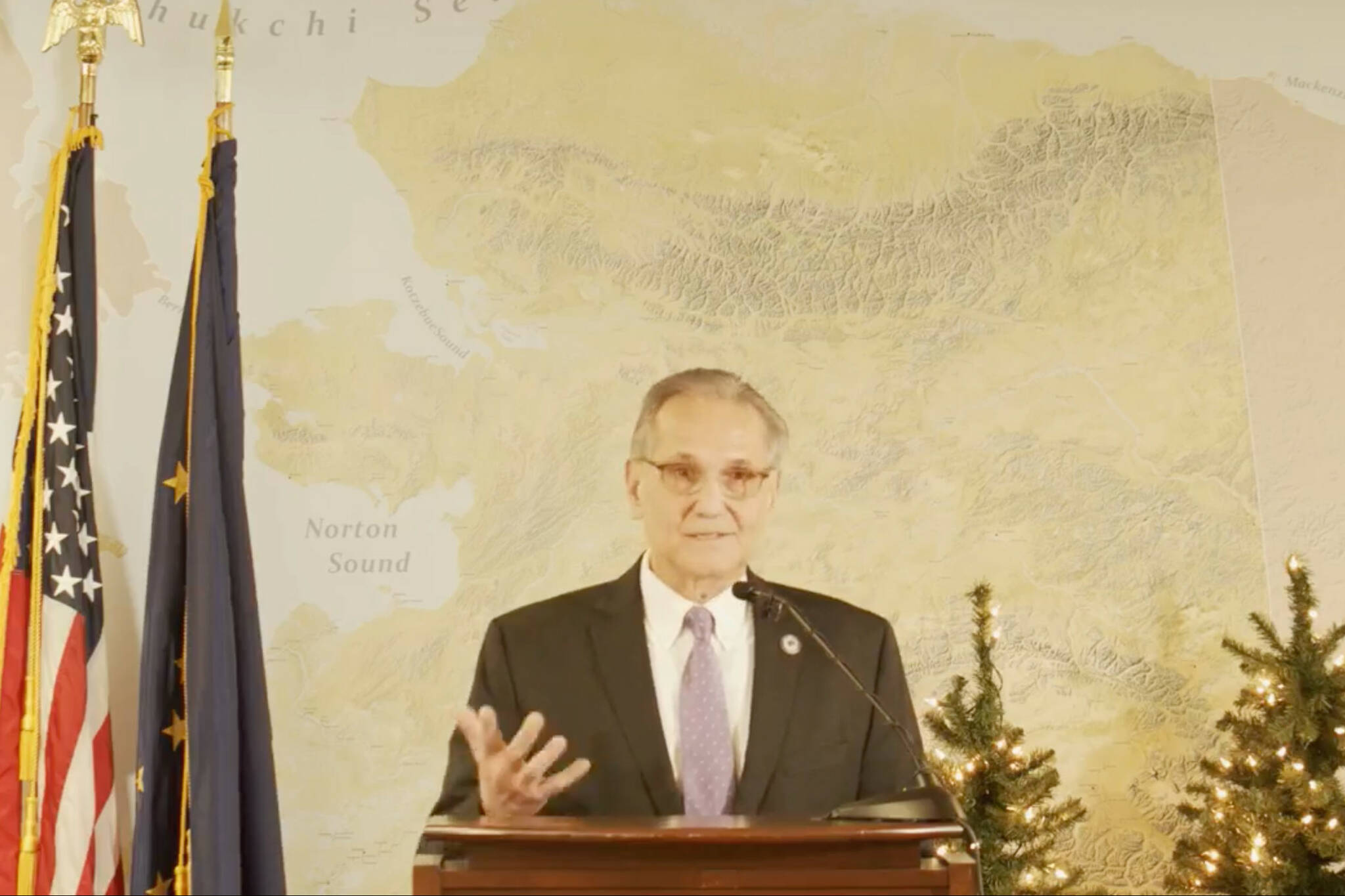Lt. Gov. Kevin Meyer announced Tuesday he will not seek reelection in the upcoming gubernatorial election.
The announcement came toward the end of a news conference announcing a bill Meyer said will focus on election security in Alaska.
Meyer said he is proud of his time working with Gov. Mike Dunleavy but was ready to step back.
“I need to be impartial with any appearance of bias or conflict because it’s extremely important as far as voter trust and confidence in our election process. I am announcing today that I will not be running for reelection as lieutenant governor in 2022. This is really tough,” a visibly emotional Meyer said. “After 30 years of elected service and –- I just counted up before this press conference — 19 elections that i’ve been in including the primary and the general, I’m kinda looking forward to sitting this one out, frankly, and focus on having the best election we can have in 2022.”
Meyer was born in Nebraska and spent 39 years working for ConocoPhillips/ARCO before retiring, according his biography on the Office of the Lieutenant Governor’s website. He also spent eight years in the Anchorage Assembly and 18 years in the Legislature, elected to both the state House and later the Senate. He was elected lieutenant governor in 2018.
Neither Meyer nor governor’s office immediately responded to questions about who would step up as Gov. Mike Dunleavy’s running mate in the 2022 election.
The bill
The bulk of the news conference focused on a bill announced by Meyer and Dunleavy that would make changes to how Alaska conducts elections.
“There’s always been concerns about election integrity no matter where you are,” Dunleavy said during the news conference. “We just want to make sure that as we move forward in Alaska a lot of those concerns will be taken care of.”
[To the rescue: Marine animals get a new lease on life]
Election fraud was widely touted as a major issue during the 2020 presidential election. However, an Associated Press review of all allegations of voter fraud in the election found fewer than 475 cases, a number small enough to be almost completely irrelevant to the overall election. Virtually every case of voter fraud was committed by individuals acting alone.
“To make matters worse, nationally, and this is still going one, there was a lot of talk about how you can trust elections. It carried over to our state as well,” Meyer said. “Alaskans need to feel sure that our elections are conducted fairly according to state and federal law. We want everyone to vote who wants to vote, but if you want to cheat, that’s not OK.”
The bill is a combination of a number of multipleconcepts, many of which have been introduced individually in other bills. Highlights from the proposed bill include:
— Removing automatic voter registration from PFD applications
— Reviewing registration lists for certain categories such as the dead.
— Creating a toll-free election fraud hotline.
— Paying postage on absentee ballots
— Requiring witnesses for absentee ballots, with signature verification.
— Putting a four-year limit on each request for absentee ballots, instead of a lifetime request.
— Allowing ballot curing for fixing minor errors on ballots.
— Creating chain of custody protocols for ballots.
— More thorough definitions of election fraud
— Increased training of law enforcement personnel for election related crimes.
Cybersecurity was very much on Dunleavy’s mind, though none of the proposed changes directly addressed that threat. Funding for these changes would come from the Division of Elections, Dunleavy said.
“We have seen heightened attempts at attacking every security system across the world by hackers,” Meyer said. “We did have some fraud in 2018. That’s working its way through the court system. There was some we’re investigating from the 2020 election.”
The Division of Elections was hacked in late 2020, exposing more than 100,000 Alaskans’ voter IDs.
The bill’s announcement was welcomed, albeit with some caution, by Judy Andree, president of the League of Women Voters Alaska.
“There were some good items mentioned for this omnibus bill although I don’t like the idea of changing the way the PFD is being used to register voters,” Andree said in an email. “It loses a lot of power when it becomes an opt-in rather than opt-out choice. There must be another way to adjust the voter roles than to change this. This comes from my experience as an election worker and having young voters come in and tell me that they don’t know if they are registered.”
Ultimately, the issue will be dealt with in the Alaska State Legislature, which is in charge of all election law, Dunleavy said.
• Contact reporter Michael S. Lockett at (757) 621-1197 or mlockett@juneauempire.com.

